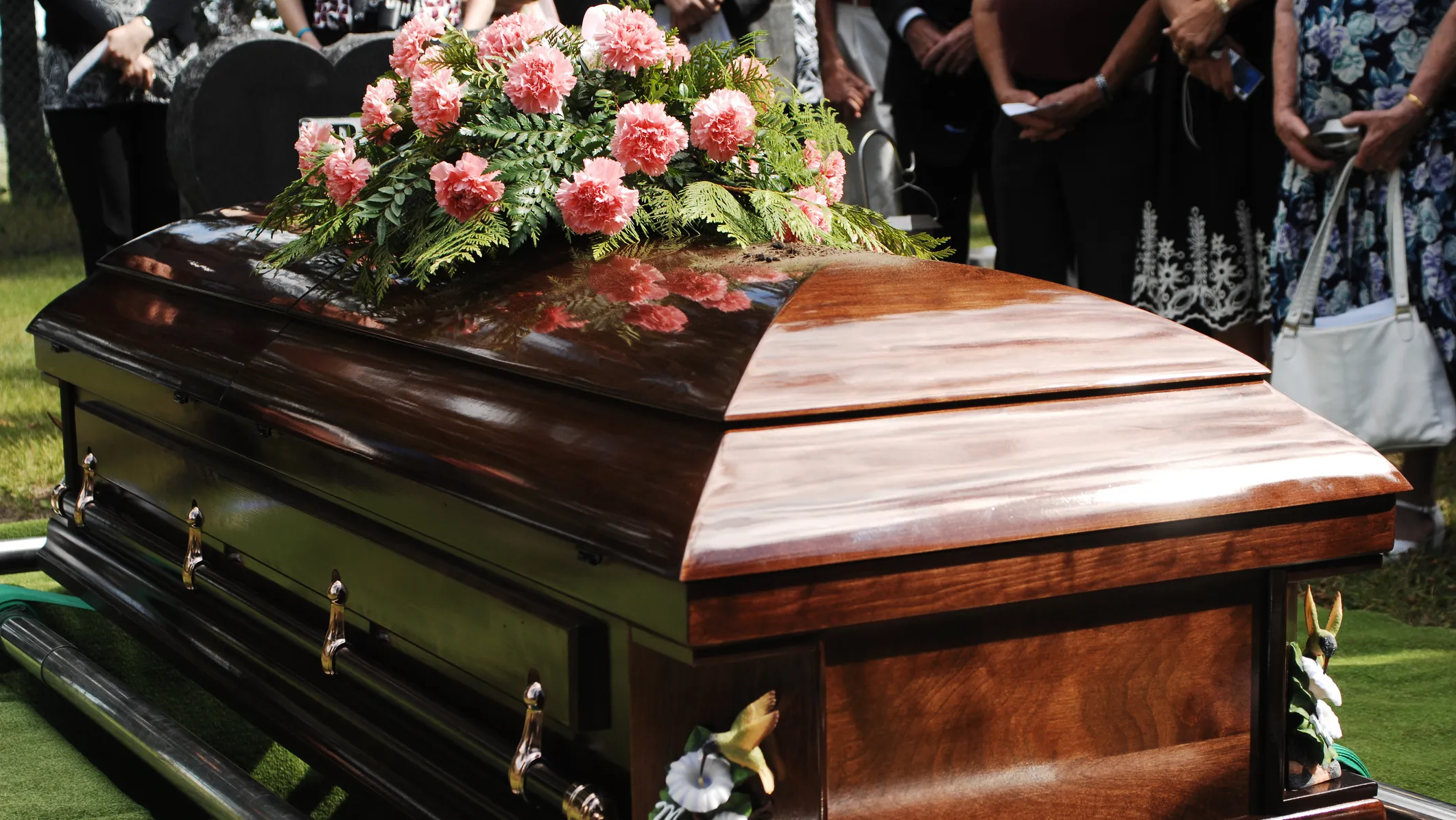Organising a funeral after the death of a loved one is a difficult and emotional time. One of the many decisions families must make is how long to wait between the death and the funeral service. This period is deeply personal, but there are some common factors to consider when deciding on the timing.
Factors That Influence Timing
- Cause of death – If the death was expected after a long illness, plans may already be in place to hold the funeral soon after. Sudden or unexplained deaths often require a post-mortem, which can delay the funeral.
- Religious and cultural traditions – Some faiths necessitate burials within 24 hours of death. Others have specific mourning periods to follow. Unique cultural traditions may also impact timing.
- Availability of family and friends – Key mourners may need time to make travel arrangements to attend the service. Funeral dates may be adjusted to allow important figures to attend.
- Venue availability – Popular churches, crematoriums and burial sites can have booked services well in advance. Flexibility on dates may be required.
- Legal paperwork – Documents need to be finalised and registered before a funeral can go ahead. Any complications can hold up the process.
- Coroner involvement – If the coroner needs to examine the body and carry out further investigation, this can significantly delay release of the body for the funeral.
Common Time Frames
While there is no set rule for how long to wait, some typical time frames are:
- 1-3 days – Often recommended as the minimum to allow immediate family to gather and begin arrangements.
- 3-5 days – Allows a little more time for family travelling long distances to attend.
- 1-2 weeks – Gives relatives from overseas adequate travel time to make arrangements.
- 2-4 weeks – May be required if awaiting burial plot purchase or headstone engraving. Also allows extended family time to adjust work and care commitments.
- 3-12 weeks – Occasionally needed if coroner enquiry or legalities like will execution drag out. Families may wait till after holidays or important dates have passed.
- 6-12 months – Some faiths prescribe extended mourning periods prior to the funeral service and burial. This is rare in the UK.
Storing and Viewing the Deceased
Between death and the funeral, the deceased will need to be properly stored and cared for. This is usually done in one of two ways:
- At a funeral home – The body is transferred to a funeral director’s mortuary. Here it is kept in cooled, dignified conditions until needed for preparation and the funeral service.
- At home – Some families choose to have the body at home for a traditional wake or viewing. This requires hiring cooling equipment and arranging home transfer quickly after death.
Having the deceased rest at home can be comforting for family members to slowly say goodbye in their own time. However, funeral directors have specialist facilities to preserve and care for the body respectfully. They can advise on best options.
Arranging Funerals Quickly
While it is ideal to have 1-2 weeks to plan a meaningful funeral service, this is not always possible. However, experienced funeral directors like this funeral director in Wirral can arrange dignified funerals with very little notice.
Even for urgent funerals within 24-48 hours of death, they can:
- Collect and care for the deceased sensitively
- Register death certificates and paperwork
- Secure slots at crematoriums or cemeteries
- Provide a minister to lead meaningful service
- Organise floral tributes, catering, transport
- Support and guide family through the process
They understand the challenges families face and provide both logistical assistance as well as emotional support in difficult times. Don’t be afraid to ask for help. Here is an additional 600 words continuing the article:
Factors That Might Delay a Funeral
While most funerals in the UK take place within 1-3 weeks of a death, there are some circumstances that can result in significant delays of several weeks or months:
Coroner’s Investigation – If the death was sudden or unexplained, the coroner may need to carry out a post-mortem and full investigation to determine cause of death. This process can take 4-6 weeks in complex cases. The funeral cannot proceed until the coroner’s office has concluded their enquiry and formally released the body.
Toxicology Tests – If toxins or drugs are suspected as playing a part in the death, blood samples will need to be sent for lab testing. This can prolong the coroner’s investigation and keep the deceased in their custody for 8-12 weeks before the funeral can be arranged.
Dispensing with Inquest – Some deaths requiring referral to the coroner do not necessitate a full inquest with court hearing. However, there are still forms and admin processes to complete before the coroner can formally conclude their investigation and release the body for the funeral. This dispensing process typically takes 2-3 weeks.
Death Abroad – If a UK national dies overseas, international paperwork and transportation all need to be arranged before repatriation of the body back home. Consulates, airlines and funeral directors must coordinate, which can take upwards of 4-6 weeks in long-haul destinations.
Executing the Will – In some disputes over complex estate inheritances, families may delay holding the deceased’s funeral service until legal issues get resolved. If executing the will is subject to long challenges, the funeral could even be postponed for months.
Custom Headstones – Some families wish to have a custom designed headstone prepared with a portrait or special inscription. Quarrying, engraving and installing new headstones can take 8-12 weeks. The funeral may be scheduled after this work is complete.
Awaiting Family Travel – If key relatives need to travel from remote overseas locations like Australia or New Zealand, they could need up to 4 weeks to make flight, visa and leave arrangements. Holding the funeral after their arrival allows them the chance to mourn and pay respects.
Funeral Service Cancellations
Though rare, occasionally a funeral service that has been arranged may need to be cancelled or postponed:
- Sudden non-availability of key venue or staff like the crematorium, cemetery, minister or conductors
- Important mourners unable to make the service, such as overseas family flights delayed
- Severe adverse weather making roads dangerous and venues inaccessible
- Unexpected complications with legal paperwork or establishing cause of death
- Last minute changes to funeral plans or discrepancies over the deceased’s wishes
- Family disputes or conflicts that disrupt agreed arrangements
Funeral directors will guide families through any necessary changes, liaising with all parties to identify new suitable dates and rearranging the service sensitively. Additional costs may be incurred for venues, printing, transport and flowers.
Even at the best of times, planning a meaningful funeral service is complex and challenging for grieving families. Experienced funeral directors provide essential care and coordination to ease the burden for those mourning a loved one. They play a vital role, particularly when deaths are sudden or unforeseen circumstances arise.
In Summary
- Allowing 1-3 days between death and the funeral is common
- Religious and cultural beliefs may require specific funeral timeframes
- Funeral directors can arrange services compassionately even within 48 hours if needed
- The time between death and funeral is a very personal decision for families
- Support is available from funeral directors to ease the emotional and logistical burden
The most important thing is to allow enough time for you and other loved ones to grieve, process the loss and cherish the memories you shared together.















